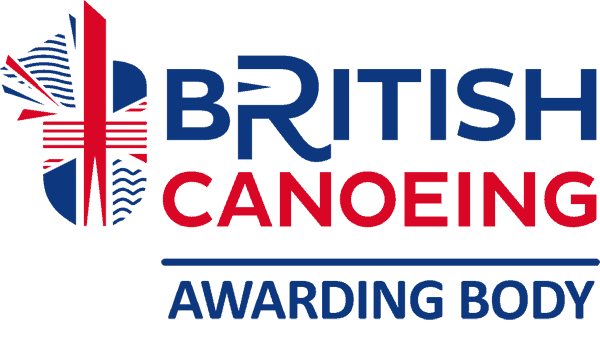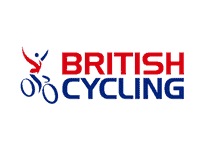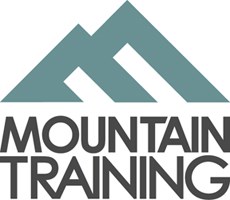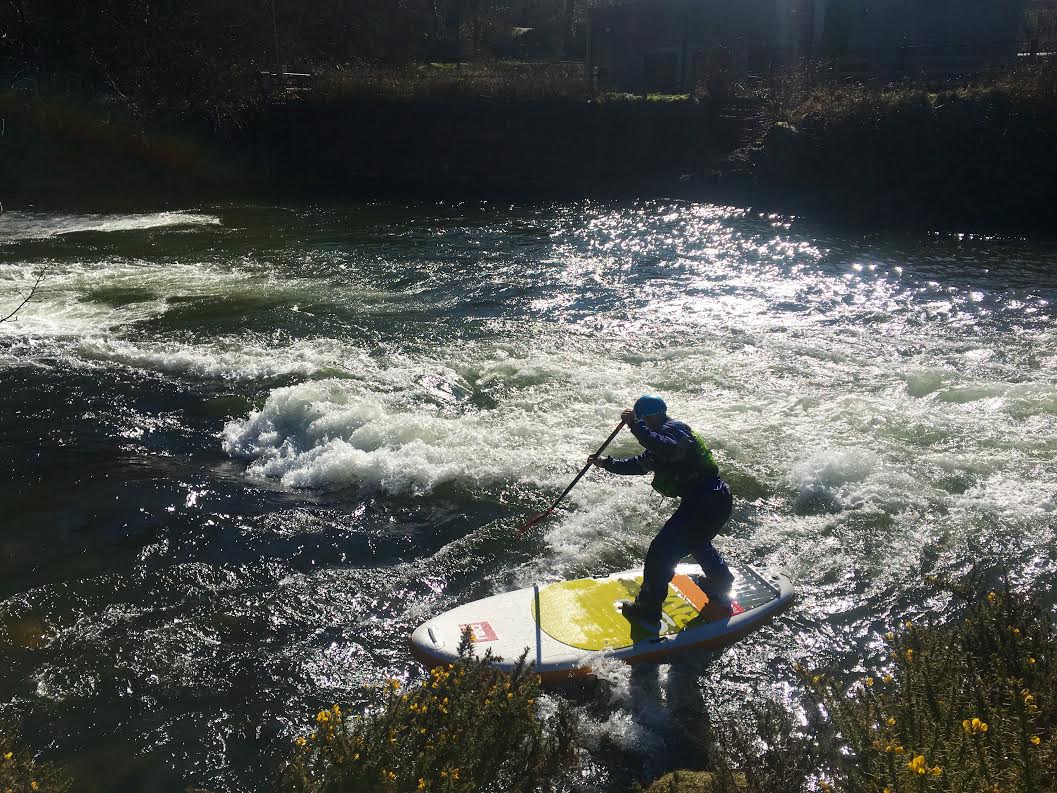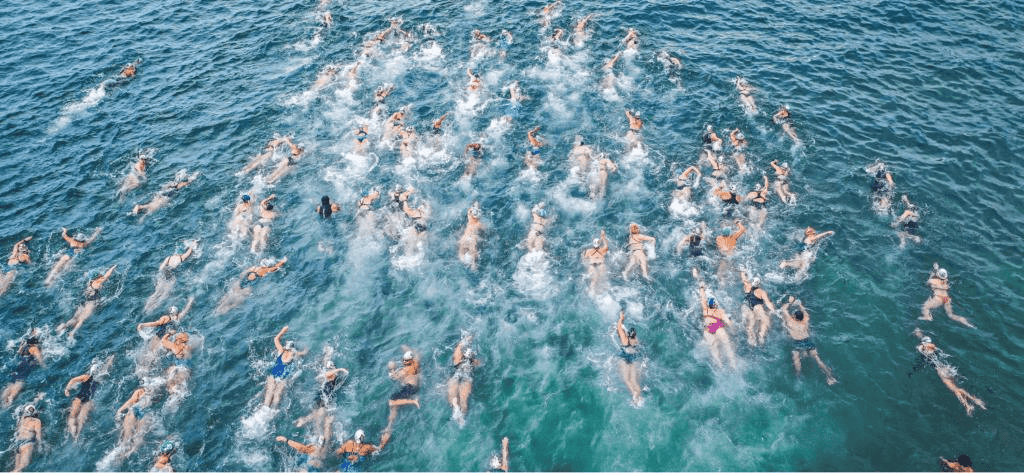The following information has been developed with input from all the stakeholders of the British Canoeing Awarding Body network and in close cooperation with British Caving and British Cycling and Mountain Training. This web page is written for paddlesport and you can follow the links below to find near identical guidance for caving and mountain biking and mountaineering.
It is the hope of the four organisations that by this consistent approach we can enable participants and the public to understand more clearly our qualifications and the crucial role they play in ensuring everyone can enjoy and develop in a wide range of adventure sports with confidence. This will ensure greater consistency and understanding and avoiding out of date information that may have been used previously.
As awarding organisations and national governing bodies, we have qualifications that are recognised by the industry, providing appropriate governance and quality assurances, as well as meeting compliance requirements from the UK qualification regulators. Over many decades, we have been recognised by sport councils, stakeholders and funding partners as leading authorities in our sector.
1. British Canoeing Awarding Body – About us
As the only Awarding body for Paddlesport in the UK we operate as the ‘qualification and training arm’ of the National Governing bodies Paddle UK, Scottish Canoe Association, Canoe Wales and the Canoe Association of Northern Ireland. Many of our qualifications are approved by Ofqual, Qualifications Wales and CCEA and we receive government support for our development work from the respective sports councils across the UK and Ireland.
2. British Canoeing Awarding Body resources
The Awarding Organisation produces a variety of resources which contain advice on good practice for anyone with a responsibility for paddlesport activity. Such resources include risk management, equipment maintenance and checks, manual handling etc. Paddle UK’s Paddlesafer is a directory of safety information and guidance for use by all organisations, paddlers, volunteers and coaches within the sport. It contains guidance on best practise, templates, checklists, information sheets on specific subjects, and specialist guidance
3. Health and safety legislation
The UK’s ‘Health and Safety at Work Act 1974’ and the Republic of Ireland’s ‘Safety, Health and Welfare at Work Act 2005’ are the primary pieces of legislation covering occupational health and safety of staff and volunteers.
4. What paddlesport activities are regulated?
Most paddlesport activities are not regulated. Some defined adventure activities provided commercially to young people in England, Scotland and Wales are regulated by the (UK) Adventure Activities Licensing Regulations (AALR). While this does not apply to adults, clubs, education, the Crown and a number of our activities it provides a clear benchmark for safety management within adventure activities. The regulations (AALR) make only one reference to qualifications, which is that “as a condition of every licence, licence holders shall maintain suitable and sufficient arrangements for the appointment of a sufficient number of competent and adequately qualified instructors (Reg 9(1)(b)(i))”. It is worth noting that the dictionary definition of being qualified is having the standard of skill, knowledge, or ability that is necessary for doing or being something; it does not say that someone must possess a qualification. The legislation also does not specify what any qualifications could/should be. The non-statutory accreditation schemes take a very similar approach to demonstrating competence.
5. Adventure activity accreditation schemes
There are currently several statutory and non-statutory adventure activity accreditation schemes and, in each case, inspectors work to confirm that management, operating systems and personnel are appropriate to the scale and nature of adventurous provision and its intended target population. This is likely to include being able to discuss the relevance of a particular qualification, together with relevant experience, which the provider or employer may have identified as appropriate to them given the nature of their provision and the environments in which they operate. Inspectors are expected to consider the decisions/arrangements a provider has made about what constitutes competence in the context of their specific activity provision and then how this is demonstrated. Providers may offer activities for which there is no clear qualification in such cases, the providers need to think carefully about how related qualifications may contribute to demonstrable competence.
6. Ways of demonstrating competence
British Canoeing Awarding Body recognises the HSE approach which recognises the principle of four ways to demonstrate competence, namely.
a. qualification,
b. equivalent qualification
c. in-house accreditation
d. competence through experience
Our matrices below provide the qualification benchmark that, where appropriate, might then be used by an employer/deployer to consider any equivalence, in house training and assessment solution or other form of experience. It is important to stress that qualification is the favoured option of many organisations; relying on British Canoeing Awarding Body to do the work of setting and maintaining appropriate standards.
7. The value of qualifications
British Canoeing Awarding Body qualifications provide valuable, national benchmarks; so much so that British Canoeing Awarding Body qualifies around 3,000 new instructors, coaches, leaders and guides every year. British Canoeing Awarding Body has compiled the matrices below in order to match a specific activity to its relevant qualification(s), identifying the minimum qualification that someone might hold to lead an activity session (the instructor, coach, or leader as well as the minimum qualification that might support overall safety management and other technical matters (the ‘technical advisor’ or ‘competent person’ role), subject to the individual meeting several other personal attributes defined by the deployer.
The definition of a lead activity session, is where the participants require a formal level of instruction, supervision and support throughout the activity.
8. Given that qualifications are for life, what further training is available?
Qualifying as an instructor, coach, leader or guide must be seen as a stage in any individual’s experience, be they a volunteer or professional, but far from the endpoint. Expanding their experience of working environments and participants while also maintaining their existing skills and knowledge and adding more is an ongoing process. As well as gaining leadership and instructional and coaching experience, there are many opportunities for continuing development within their roles, through on the job training, assessment and experience and within many institutions. British Canoeing Awarding Body also provide rich sources of knowledge and support. The four National Association Delivery Centres provide excellent communities of practice that include further training, discussion forums, advice centres etc. We recognise that there will be other groupings within various institutions (examples might include commercial overseas leader forums, military groups etc.) so again it will be for deployer to judge how well-connected instructors and technical advisers are to their peers.
9. Developing a person specification for instructors and advisers
Anyone using a leader, instructor, coach or guide will want them to fit into their organisation and that means developing a person specification alongside a qualification. Competence for a particular job or role also includes a range of other factors including:
a. Skills: these may include problem solving, teamwork and collaboration, oral and written communications skills and leadership.
b. Knowledge; theoretical and practical familiarity, awareness and understanding of the specific role of leader, instructor, coach or guide.
c. Attitude: personal attributes and behavioural/character traits that align with your club, organisation, or centre such as self-awareness, resilience, professionalism and a strong work ethic and the ability to remain calm in a crisis. More specifically being customer/member focused, having common sense/being pragmatic, being positive (a “can do” approach), a problem solver with an ability to analyse problems from first principles, being inclusive may all be valuable traits.
d. Training: Qualifications confirm that skills and knowledge were demonstrated on a specified date, whereas ongoing support and/or membership of a relevant association will maintain and enhance that base standard. Training may include core ‘instructor’ training at a specific level, further training such as to how to work with harder to reach groups and additional training such as might prove useful for the role of technical adviser
e. Experience: both general & context specific experience may be necessary for a particular client group and broader experience may be necessary for someone to provide safety advice. this can be
i. directly relevant, context specific, experience of the activity, such as stand up paddleboarding,
ii. indirect experience in parallel activities such as different environments and craft etc.
iii. transferable experience from comparable activities such as within climbing, hillwalking, mountain biking etc.
iv. The quantity of experience required to gain a qualification is well described and can be measured in years as well as in the number of days. Any employer will then need to consider how much context specific experience an instructor should gather year on year after they’ve qualified. The breadth and depth of a technical adviser’s experience may both need to be significantly greater. An deployer must decide on the value of breadth as well as the depth of experience of a specific activity.
10. Advice and Expertise
In some situations, those with responsibility for activity delivery may lack the technical expertise and experience to make decisions about staff competence, safety management systems and supervision. In such cases, those responsible may choose to rely upon a what is variously known as a technical advisor, a competent person, a technical expert, subject matter expert etc. In the matrices below are recommendations for skills, experience and qualifications that may be relevant when selecting appropriate technical advisors. There are the communities of practice that several associations offer, the interactions with the expert inspectors of the various accreditation schemes and the expertise within British Canoeing Awarding Body and the National Association Delivery Centers.
11. Activity matrices
- Very Sheltered Water activity matrix
- Sheltered Water activity matrix
- Moderate Water activity matrix
- Advanced Water activity matrix
For clarity on the environmental definitions and environments, view the Environmental Definitions & Deployment Guidance for Instructors, Coaches & Leaders document.
